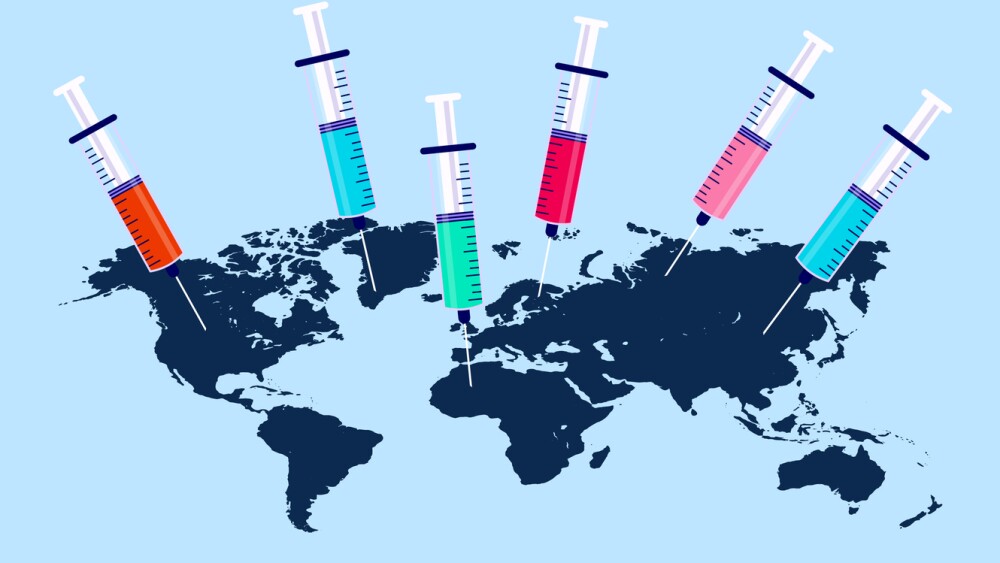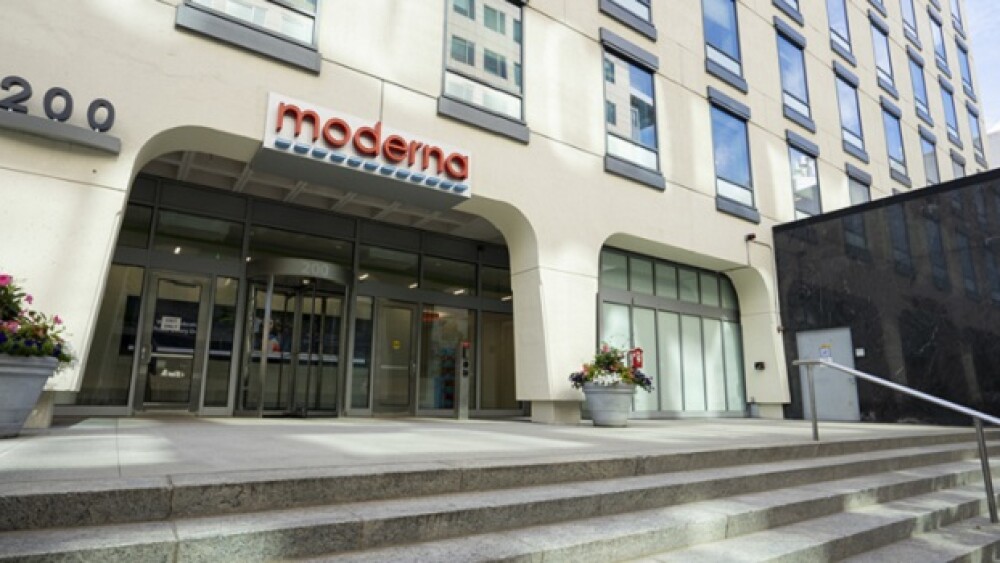TEL AVIV, Israel, June 1, 2015 (GLOBE NEWSWIRE) -- VBL Therapeutics (Nasdaq:VBLT), a late-stage clinical biotechnology company focused on the discovery, development and commercialization of first-in-class treatments for cancer, today announced updated interim results from its ongoing Phase 2 study of VB-111 in patients with recurrent glioblastoma (rGBM). Data showed a statistically significant overall survival benefit in patients treated with VB-111 followed by VB-111 in combination with bevacizumab (Avastin®) upon disease progression, compared to patients treated with VB-111 followed by bevacizumab alone (p=0.05). These study results will be presented in greater detail at VBL's Analyst and Investor Meeting today, Monday, June 1, 2015, in conjunction with the 2015 American Society for Cancer Oncology (ASCO) Annual Meeting.
"We are very pleased to see a statistically significant overall survival benefit in this more mature data set, with median overall survival extended to 16 months in patients receiving VB-111 followed by VB-111 in combination with bevacizumab," said Dror Harats, M.D., Chief Executive Officer of VBL Therapeutics. "We also announced data on Saturday demonstrating VB-111's potential as a treatment for Müllerian cancer; taken together we have increasing confidence in the potential of VB-111 as a treatment for numerous solid tumor indications. We look forward to expeditiously continuing our development of the compound and initiating a pivotal Phase 3 study in rGBM later this year."
"rGBM is a devastating illness and there is a clear need for new medications that effectively hinder tumor growth and extend patient survival," said principal investigator Andrew Brenner, MD, PhD, Clinical Investigator, Cancer Therapy and Research Center, University of Texas Health Science Center San Antonio. "These clinical data are encouraging, both in VB-111's impact on overall survival and in VB-111's possible role as an immune response modulator. We hope that VB-111 will play an important role in bringing the promise of a new treatment option closer to the many patients suffering from this devastating disease."
These interim Phase 2 results include 46 patients with rGBM treated with VB-111; upon disease progression, 23 patients were treated with VB-111 in combination with bevacizumab, and 22 received bevacizumab alone. One patient remains stable on VB-111 alone at 18 months. VB-111 in combination with bevacizumab demonstrated significant improvement in overall survival, with median overall survival of 16 months, compared to eight months in patients on VB-111 followed by bevacizumab alone (p=0.05). VB-111 also demonstrated a statistically significant improvement over the historical bevacizumab data set from the BELOB trial, which looked at efficacy of bevacizumab, lomustine or a combination of both agents, and reported a median overall survival of eight months for bevacizumab in 50 patients with rGBM (p=0.003)1. Consistent with its mode of action, which in rGBM may require more than several weeks to demonstrate clinical effects, VB-111 did not affect time to first progression.
These data also suggest that VB-111 induces an immuno-therapeutic effect. Of the 46 patients who received VB-111, 25 patients spiked a fever post-dosing of VB-111 at least once, while 21 patients did not. Feverish patients demonstrated a median overall survival of 16 months, compared to non-feverish patients, who had a median overall survival of 8.5 months (p=0.03). This correlation between clinical efficacy and fever suggests that VB-111 can induce an immune response in patients and supports a role of the immune system as part of VB-111's mechanism of action. It also strengthens VB-111 preclinical findings, which showed an elevated immune response in tumors of VB-111-treated animals.
VBL's pivotal Phase 3 clinical trial will be led by Timothy Cloughesy, MD, Professor of Clinical Neurology and Director of the Neuro-Oncology Program, UCLA School of Medicine and is expected to initiate in mid-2015 under a special protocol assessment granted by the FDA. The FDA has also approved the comparability of VB-111 batches produced in a scaled-up production process intended for Phase 3 and commercial production to the small scale production batches used for the Phase 1 and 2 clinical studies. Following this approval, VBL intends to use the scaled-up batches for the upcoming rGBM pivotal Phase 3 study.
On Saturday, VBL announced that positive preliminary results from an investigator-initiated, Phase 1/2a trial of multiple dose VB-111 in recurrent platinum-resistant Müllerian-Ovarian cancer were presented by Richard T. Penson, MD, MRCP, Associate Professor of Medicine, Harvard Medical School, Clinical Director of Medical Gynecologic Oncology, Massachusetts General Hospital, at the 2015 ASCO Annual Meeting. The data demonstrated promising evidence of clinical benefit in patients with recurrent platinum-resistant Müllerian cancer who received VB-111 in conjunction with weekly paclitaxel.
Study Details:
The Phase 2 trial is a multi-center study designed to determine the safety, tolerability and efficacy of VB-111 in patients with rGBM. In the first stage of the study, patients were treated with VB-111 alone. Upon disease progression -- defined according to the Response Assessment in Neuro-Oncology (RANO) criteria as a worsening of the patient's cancer with an increase of at least 25% in the overall mass of measurable tumors, the appearance of new tumors, the worsening of non-measurable tumors since the beginning of treatment, a need for increased dose of corticosteroids, or clinical deterioration -- patients entered the second stage of the study, in which they received either bevacizumab alone as standard of care or bevacizumab in combination with VB-111.
Investor Event and Webcast:
VBL will host a live event with audio webcast of its discussion of the Company's clinical programs and pipeline at the ASCO Annual Meeting on Monday, June 1, 2015 at 6:30am CT (7:30am ET).
The webcast will be available in the Events section under the Investor Relations section of the Company's website at www.vblrx.com and an archived replay of the webcast will be available for 30 days after the presentation.
About VB-111:
VB-111 is a novel, intravenously-administered, anti-angiogenic agent that utilizes VBL's proprietary Vascular Targeting System (VTS™) to target endothelial cells in the tumor vasculature for cancer therapy. VB-111 contains a non-replicating adenovirus, a proprietary modified murine pre-proendothelin promoter (PPE-1-3x) and a Fas-Chimera transgene which is specifically activated in angiogenic tumor blood vessels, leading to their apoptosis. VB-111 is the first agent based on transcriptional targeting of tumor endothelium to be assessed in a clinical trial.
VB-111 completed a Phase 1/2 "all-comers" clinical trial, which demonstrated multiple cases of objective tumor response and disease control and excellent safety and tolerability. VB-111 has Fast Track Designation for recurrent glioblastoma in the U.S. and orphan drug status for glioblastoma in both the U.S. and EU. VBL is also conducting early Phase 2 study in ovarian cancer.
About VBL:
Vascular Biogenics Ltd., operating as VBL Therapeutics, is a late-stage clinical biopharmaceutical company focused on the discovery, development and commercialization of first-in-class treatments for cancer. The Company's lead oncology product candidate, VB-111, is a gene-based biologic that is initially being developed for recurrent glioblastoma, or rGBM, an aggressive form of brain cancer. VB-111 has received orphan drug designation in both the United States and Europe and was granted Fast Track designation by the FDA for prolongation of survival in patients with glioblastoma that has recurred following treatment with standard chemotherapy and radiation. VBL Therapeutics expects to begin the pivotal Phase 3 clinical trial of VB-111 in rGBM in mid-2015, under a special protocol assessment granted by the FDA.
Forward-Looking Statements:
This press release contains forward-looking statements. These forward-looking statements are not promises or guarantees and involve substantial risks and uncertainties. Among the factors that could cause actual results to differ materially from those described or projected herein include uncertainties associated generally with research and development, clinical trials and related regulatory reviews and approvals, and the risk that historical clinical trial results may not be predictive of future trial results. In particular, results from our proposed pivotal Phase 3 clinical trial of VB-111 in rGBM may not support approval of VB-111 for marketing in the United States, notwithstanding the positive results seen in our current clinical trial. A further list and description of these risks, uncertainties and other risks can be found in the Company's regulatory filings with the U.S. Securities and Exchange Commission. Existing and prospective investors are cautioned not to place undue reliance on these forward-looking statements, which speak only as of the date hereof. VBL Therapeutics undertakes no obligation to update or revise the information contained in this press release, whether as a result of new information, future events or circumstances or otherwise.
1 Taal et al., Lancet Oncol. 2014 Aug;15(9):943-53.
CONTACT: Hannah Deresiewicz Stern Investor Relations, Inc. 212-362-1200, hannahd@sternir.com

Help employers find you! Check out all the jobs and post your resume.




